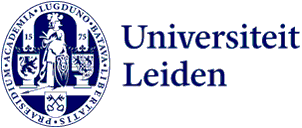
New project explores how engineers and AI can truly work together
What if AI doesn’t just support engineers, but actually works alongside them? A large consortium, including Leiden University, gets 3.7 million euros. They will explore novel synergies between engineers and AI, in industrial engineering design areas such as automotive engineering.
‘GenAIDE gives us a unique opportunity to rethink how humans and AI collaborate, not by replacing engineers, but by amplifying their creativity and decision-making,’ says Niki van Stein, assistant professor of Explainable AI. ‘It’s an exciting step towards more intelligent, explainable, and cooperative design processes.’
Solve problems together with AI
Over the next four years, the GenAIDE (Generative AI for Industrial Design Engineering) doctoral network will look at how AI can go from being a simple tool to becoming a real partner in engineering teams. Instead of just assisting with tasks, future AI systems could take part in brainstorming, suggest new ideas, or help solve tricky problems alongside human engineers.
Generative AI and Large Language Models (such as ChatGPT) offer plenty of new opportunities for engineering and design, but to really make good use of them, people who understand both AI and engineering are needed. That is what this project is all about.
What are generative AI and large language models?
Generative AI is smart software that can create new things, like text, images, or designs, based on what it has learned from large amounts of data. Large Language Models (LLMs), like ChatGPT, are a type of generative AI trained specifically on text. They can answer questions, summarise documents, or even help write reports.

The project brings together seven universities and nine companies, and includes a training programme for 14 PhD candidates. Five of them will graduate at Leiden University and will be supervised by Anna Kononova, Niki van Stein, and Thomas Bäck. These PhD students will explore new methods for working with AI in design and engineering, and help shape how people and AI can effectively work as a team.
‘We’re truly excited about this funding,’ says Anna Kononova, assistant professor at Leiden University. ‘Thanks to the close involvement of our industry partners, this training is shaped by real-world challenges and prepares the doctoral candidates to make an immediate impact.’
‘Thanks to the close involvement of our industry partners, this training is shaped by real-world challenges.’
Preparing students to work with AI tools
The goal is a real shift in how engineers interact with AI, making teamwork more efficient, creative, and capable of solving more complex problems than ever before. The training programme will also help shape future education, giving students the skills to work with the next generation of AI tools in engineering.
The project focuses on new ways to combine natural language interaction, evolutionary optimisation, and advanced machine learning, while also looking at how AI changes the way teams work together. It’s about much more than just smarter software, it’s about smarter teamwork.
‘This project builds on previous achievements of our group by taking it to the level of interactive, AI-assisted engineering – exploring synergies from the interaction between trustworthy generative AI and human expertise,’ says Thomas Bäck, professor of Natural Computing at Leiden University. ‘We are very excited to be part of such a wonderful consortium, led by the Honda Research Institute Europe, and to supervise five PhD students in the project.’
